By Aidan Ocampo and Hector Ontiveros Morales
On Monday, September 12, we left Be’er Sheva, the capital of the Negev region early in the morning as our bus headed south towards Sde Boker. This Kibbutz served as the retirement and final resting place of Israel’s first prime minister, Ben Gurion. We visited his tomb as the first stop of the day which overlooks the impressive Tzin valley. Afterward, we arrived at the Zuckerberg Institute for Water Research at Ben Gurion University with our guide, Edo Bar-Zeev. This is one of the campuses of the Ben Gurion University of the Negev, with the main one located in Be’er Sheva.
The first presentation of the day focused on Israel’s path to leading the world in innovative water technology. As the country faces increasing water scarcity and a rapidly growing population, the presentation underscored the urgency to develop solutions for the challenges facing Israel today. Beyond Israel, the discussion also explored the global water crisis which is worsening from the impacts of climate change and global inequality. In Israel, one of the first projects from the national water authority was to connect the Sea of Galilee to the arid Negev region. This was important as the UN discovered the Negev’s agricultural capability in 1947 which could flourish with the presence of freshwater. Israel has a deficit of water demand which is now met with the use of desalinated water. We learned that desalination produces over 650 million cubic meters of freshwater per year, and the country plans to meet 100% of its drinking water needs from desalinated water by 2030.
Another researcher, Shai, took us on a tour of the first-floor lab. We found the lab so impressive due to its size which allows the researchers to work with models that are larger than the ones found in class but smaller than those used in industry. His group is examining nitrates in the soil and microplastic pollutants in water. They have set up a system to manage and control the concentration of nitrogen in the soil through measures taken every hour.
Dr. Ode took us to a pilot lab that tests both reverse osmosis and electrodialysis systems. We had already learned about reverse osmosis but electrodialysis introduces electrical potential instead of pressure to separate ions in the water. The advantage of this technology is that it can be used to selectively modify ions to retain valuable minerals originally found in saltwater.
Finally, with Noam Weisbrod, we learned more about the desert region of Israel which encompasses 60% of the country but only 9% of its population. He gave us an overview of the individual institutes at the university dealing with water scarcity, food insecurity, dry land protection, and solar energy. We ended the visit by checking out one of the world’s first desalination systems which was developed in the 1960s by Professor Sydney Loeb and powered by gravity. All in all, we learned so much about the importance of water and proper management, along with the innovations produced in Israel.
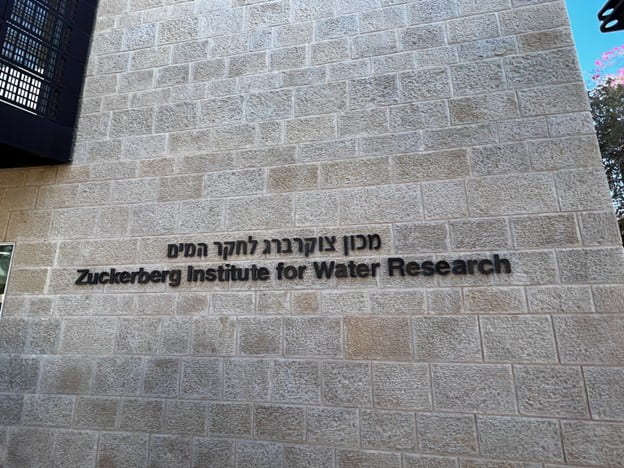
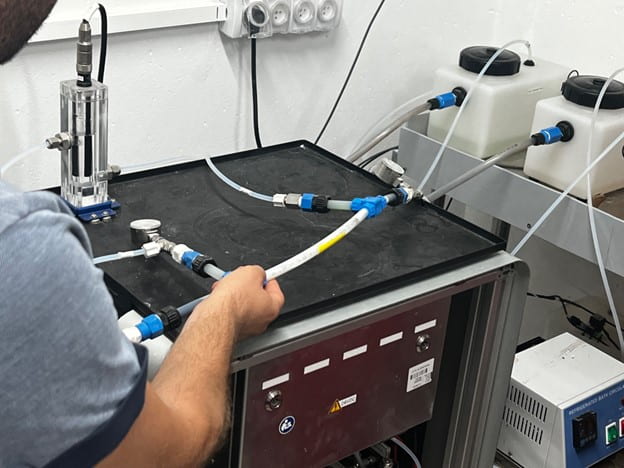
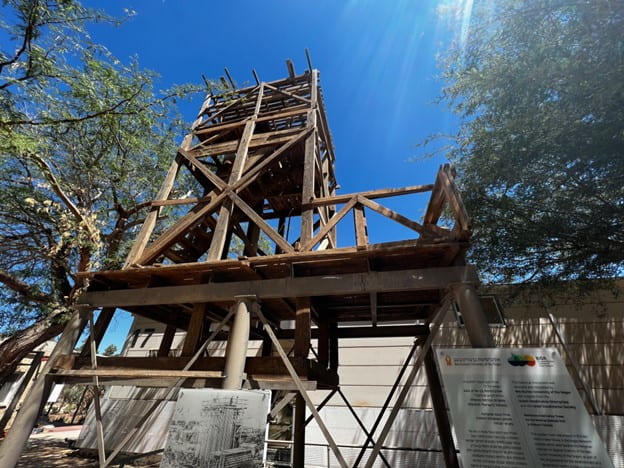
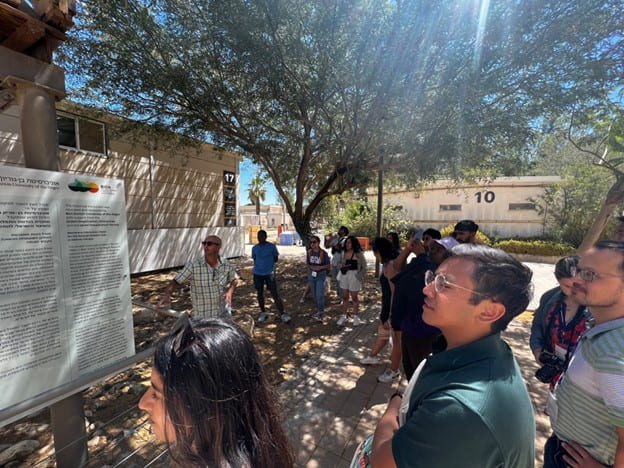
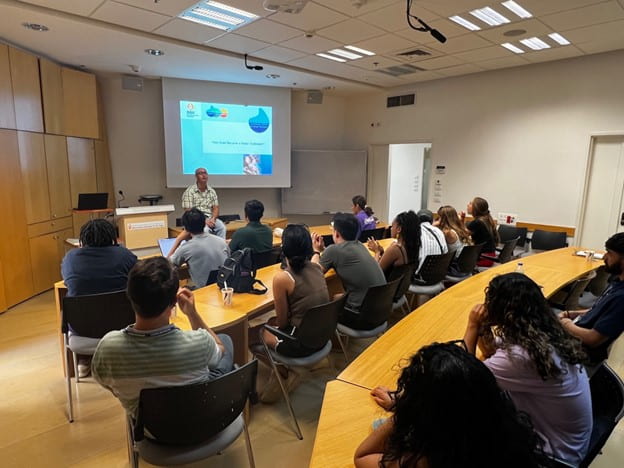
The Global Engineering Trek (GET) to Israel is jointly organized by the Northwestern Center for Water Research (NCWR) and the Israel Innovation Project (IIP). This program is focused on the topic of water (GET Water-Israel) and is offered to all first- and second-year Northwestern undergraduate students. GET Water-Israel is co-sponsored by McCormick Global Initiatives, the Institute for Sustainability and Energy at Northwestern (ISEN), the Crown Family Center for Jewish and Israel Studies, NCWR, and IIP.

